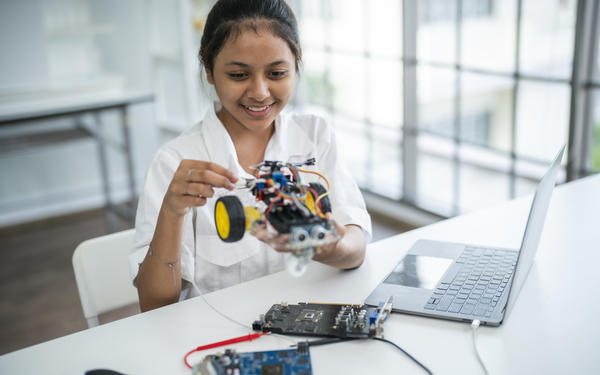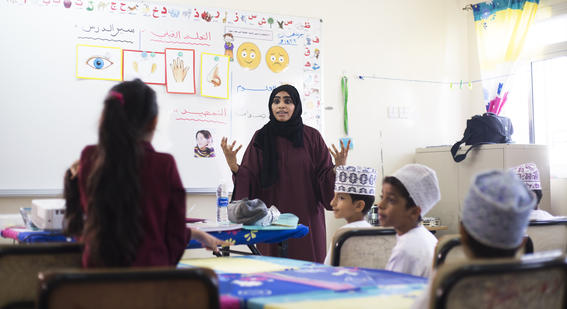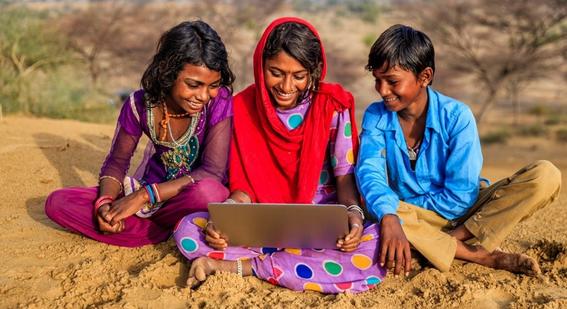Education reform and helping young learners in Asia Pacific
Daniel Suen recently joined Cambridge Partnership for Education as Head of Education Reform Asia Pacific & Americas. He shares his experience and tells us why one of his biggest priorities will be to help governments across the Asia Pacific to equip young learners with the skills and education needed to thrive in a modern economy.

Preparing learners and empowering existing workforces to actively participate in the modern economy has become ever more important, especially in the wake of the pandemic.
It’s among the challenges I most look forward to engaging our partners with as the new Head of Education Reform Asia Pacific & Americas at Cambridge Partnership for Education, a role I was excited to start in April this year. Cambridge Partnership for Education is the dedicated unit in the University of Cambridge that works closely with governments and organisations to enhance the quality of education systems around the world and achieve high-quality education for all.
For nearly two decades, I have dedicated myself to working in international markets, with a particular focus on the Asia Pacific region, part of the world where Cambridge also has deep experience and expertise.
A recent professional focus of mine has been working to bridge the gap between academic institutions and the evolving needs of employers through fostering collaborative curriculum development. I worked with APEC, the Asia Pacific Economic Cooperation, to assess the digital skills gap and develop a planning tool for policymakers, educators, and a resource for recruiters. I was also a curriculum adviser for an initiative for Ant Financial and International Finance Corporation (IFC), where I worked to nurture and inspire social inclusion and economic development through fintech innovation.

Preparing learners for the future labour market
The current education challenges involve moving away from rote learning and shifting towards a more holistic, active learning framework, which prepares children for critical thinking, problem-solving, and creativity, so-called 21st century attributes; something which needs to start at an early age.
It’s promising to see that many countries in the region have already taken steps towards reform. In Singapore, where I live and where Cambridge has a long history of collaboration, they have spotted this need and evolved progressively towards slimming down testing in early years education and put more focus on competencies and soft and vocational skills, likewise in Malaysia.
India launched a new National Education Policy in 2020, which emphasizes a shift from rote learning to a multidisciplinary approach, encouraging creativity, and aiming to shift emphasis around high-stakes examinations.
Indonesia, led by Minister of Education, Culture, Research, and Technology, Nadiem Makarim – who recently visited Cambridge’s Science Park and met with Jane Mann, Managing Director of Cambridge Partnership for Education – has strongly encouraged teachers to bring innovation in teaching and reformed the curriculum to incorporate more holistic experiences.
Cambridge is an advocate for quality assurance mechanisms and local capacity training to improve outcomes against constraints on time and resources. Long term planning and system level improvement is critical, and it is important to support teachers, school leaders and policy makers to find innovative methods to include TVET (technical and vocational education and training) in curricula, including engagement with local employers, and building progressive pathways to employment.
The crucial role of technology
Following on the accelerated progress of digital transformation bought on by the pandemic, and the power of data to support monitoring and evidence-based research, I believe technology will play a crucial role in education reform opportunities.
Cambridge is a strong believer in digital transformation and innovation. We recently launched an EdTech Fellowship with HP to advance digital transformation in education systems. The programme is open to senior government officials, advisors and NGO or business leaders, to not only use technology to create societies that are more inclusive and prosperous, but also to ensure that young people are equipped with the skills they need for their careers.
We know that technology will play an increasingly vital role in planning, monitoring, and supporting governments and policy makers. But another way we are using technology is to help teachers and parents with better data to inform strategies.
This includes using data for the assessment of potential and wellbeing. For example, we are bringing together our decades of research and expertise to create a holistic understanding of a learner’s profile, beyond just curriculum comprehension, to include cognitive and emotional attributes. In South Asia, we are piloting initiatives to get insight into how students are feeling and where they need emotional support to improve their ability to learn. Assessing wellbeing, and acting on the results, is another a step towards giving students the support they need to flourish throughout their learning journey. It can also, in the future, help teachers in the region address the very real challenges they face.
I am incredibly excited about joining Cambridge Partnership for Education and being a partner for supporting and driving positive change in countries in both the Asia Pacific and Americas.
If you’re looking for support to reform your education system, please get in touch with me directly or contact the team at Cambridge Partnership for Education



